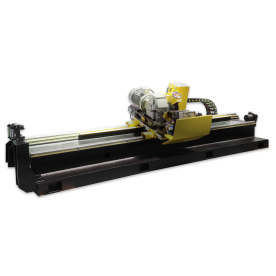In the evolving world of amateur radio, the advent of technology has led to the introduction of various equipment that simplifies the user experience while enhancing performance. Among these, all-in-one solid state HF (High Frequency) equipment stands out as a significant innovation. This technology amalgamates multiple functionalities into a single device, offering a compact solution without compromising on quality or capabilities. This article delves into the advantages, features, and uses of all-in-one solid state HF equipment, making it an attractive option for both novice and experienced amateur radio operators alike.
What is All-in-One Solid State HF Equipment?
All-in-one solid state HF equipment refers to radio transceivers that integrate various functions typically found in separate devices. These functionalities may include transmission and reception across different HF bands, SSB (Single Sideband), CW (Continuous Wave), digital modes, and often an inbuilt power amplifier. Solid state technology indicates that the device uses semiconductor components rather than older tube or valve technology, which provides better efficiency, reliability, and performance.
Benefits of All-in-One Solid State HF Equipment
1. **Space Efficiency**: One of the most significant advantages of all-in-one units is their compact design. For amateur radio operators with limited space, these units can easily fit into various environments without the need for extensive setups of multiple components. Whether in a dedicated shack, a mobile setup, or even portable operations in the field, an all-in-one unit can simplify logistics dramatically.
2. **Cost-Effective**: Investing in separate components such as a transceiver, tuner, and amplifier can be financially prohibitive. All-in-one solid state HF equipment generally provides a more economical solution without sacrificing quality. By purchasing a single unit, operators may also save on ancillary costs like cables and stands.

Exploring the Benefits and Features of All-in-One Solid State HF Equipment for Modern Amateur Radio Enthusiasts
3. **Ease of Use**: Newcomers to amateur radio can be overwhelmed by the variety of equipment and the complexity of setups. All-in-one units typically feature user-friendly interfaces with intuitive controls, making them easier to operate. Many manufacturers design these devices with beginners in mind, providing clear displays and presets that can simplify frequency selection and mode changes.

Exploring the Benefits and Features of All-in-One Solid State HF Equipment for Modern Amateur Radio Enthusiasts
4. **Enhanced Performance**: Solid state technology brings several performance improvements. All-in-one solid state HF equipment tends to have better thermal management compared to traditional tube equipment, leading to enhanced reliability and longevity. Moreover, with ongoing advancements in semiconductor technology, these devices can offer improved sensitivity and selectivity, which is paramount in crowded frequency bands.
Key Features to Look for in All-in-One Solid State HF Equipment
When considering all-in-one solid state HF equipment, there are several features that users should prioritize:

Exploring the Benefits and Features of All-in-One Solid State HF Equipment for Modern Amateur Radio Enthusiasts
– **Versatile Frequency Coverage**: An ideal HF transceiver should operate across multiple HF bands, including 80m, 40m, 20m, and even VHF/UHF bands for those interested in multi-band operation. This versatility allows operators to enjoy a wider range of communication options.
– **Integrated DSP (Digital Signal Processing)**: DSP technology significantly enhances audio quality while reducing noise and interference. A device equipped with effective DSP algorithms can improve the overall operation experience, especially in unpredictable bands.
– **Multiple Operating Modes**: Having options for SSB, CW, and digital modes (like FT8, PSK31, etc.) within the same transceiver enables operators to effectively communicate with others across diverse formats and conditions.
– **Built-in Tuner**: An internal automatic tuner can help ease the process of impedance matching between the transceiver and the antenna, making it simpler for operators to focus on making contacts rather than the technicalities of tuning.
– **Connectivity Options**: With the rise of digital modes, user connectivity options are crucial. Ensure the device includes USB connectivity for easy integration with computers for digital mode operations.
Conclusion
All-in-one solid state HF equipment represents a significant stride in the modern amateur radio landscape. For newcomers and seasoned operators alike, these compact and powerful devices provide a fabulous blend of cost-efficiency, ease of use, and enhanced performance. As technology continues to advance, such equipment remains a staple for anyone looking to dive into the fascinating world of HF communication. Whether for casual conversation, contesting, or emergency communication, all-in-one solid state HF equipment is primed to meet both current needs and future demands in the realm of amateur radio.Pipe mill production line with quality control measures
